No course on biology would be complete without devoting several lectures to the contributions of Rosalind Franklin. Her impact on the discovery of the double helix is the stuff of legend. Had she lived, it is likely that Franklin would have shared the Nobel Prize in Biology with Francis Crick, James Watson and Maurice Wilkins. Since Nobel Prizes are not awarded posthumously, Franklin could not win the prize for chemistry either. But she did determine that substances are expelled from coal in order of molecular size as temperature is increased. (Wikipedia.) How cool is that? I personally have never used the words “coal,” “substances,” and “molecular sizes” in a sentence before. And Franklin didn’t just use those words in a blog post, she figured out the relationship between them. Oh, and she also helped make gas masks more efficient–not a bad discovery given all the bother of the second World War.

Rosalind Franklin could also be the subject of a contemporary course on women’s rights. Would Watson and Crick have discovered the structure of DNA without Franklin’s research? Did Watson and Crick steal Franklin’s idea and deny her credit?
A course on the history of science or, indeed, a course in history would include chapters on Franklin and her family. Franklin’s aunt, Helen Caroline Franklin was active in women’s suffrage. Rosalind Franklin’s great uncle was the first Jewish man to serve in the British Parliament.
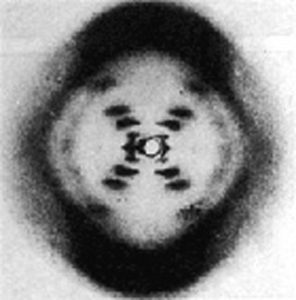
Rosalind Franklin’s influence is part of the medical school curriculum. She worked on the molecular structure of viruses. There is a medical school that bears her name. There is even an asteroid named after her, although I suppose a course in astronomy could be taught without mentioning Franklin or her asteroid.
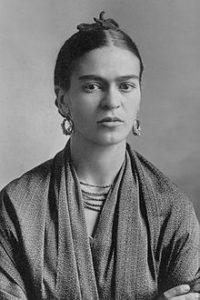
A teacher of any of these courses is going to feel passionate about Franklin and her contributions. We all feel most fervent about that which we know the most. Your children’s teachers love their subjects. Art history teachers are besotted with the work of Frida Kahlo and Pablo Picasso; anthropology teachers are enamored with the insights of Jane Goodall and Donald Johanson; physics teachers adore the results of Henrietta Leavitt and Neil Degrasse Tyson. People devote their lives to studying that which they find entrancing.

Communicating that adoration is what allows teachers to put up with interminable faculty meetings; parents doing homework for their children; long hours for low pay; and UTIs resulting from no bathroom breaks during the day because the budget has been slashed and recess has been cut from the schedule. Sharing passion and the joy of discovery is what good teaching is all about. Therefore, the bane of every teacher’s existence are sneering, whiny questions including:
Why do we have to know this?
How will this help us in life?
Will this be on the test?
These questions make teachers cringe. “You’re only learning about one of the greatest advances in the history of science because you’re going to be tested on it?” Ouch! Imagine announcing your engagement to a family member who replies, “You’re going to marry her? She’s unbearable. Why would anyone want to marry such a woman? Have you gone three bulbs short of a chandelier?” Marriages are shared rather than ignored because we seek communal joy and affirmation. Teaching at its best is about sharing passion as well. We are a social species after all.

Let’s encourage our beloved children to respect as many subjects and as much knowledge as possible. Let’s ignore the grades as best we can and focus on the passion for learning. Copernicus suggested that a geocentric view of the solar system didn’t fit the data? Wow! All those different Finch beaks allowed Darwin to explain natural selection? Wow! Beethoven’s Ninth Symphony was composed when he was deaf? Wow! Rosalind Franklin uncovered the secret of all life on earth and her work may have been stolen by two of the most preeminent scientists of the 20th century? Wow! The more that education is Wow! the better. A little Wow! in life is also a good thing.
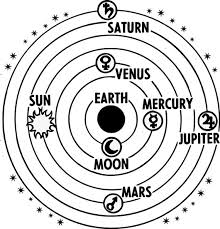
Let’s respect the interests of our children as well. Because “Look, Dad, a snail!” becomes “Look, Dad, a cyclotron” before you can say “where did I put those photo albums with the baby pictures from 20 years ago?” Sure, snails have lost their allure for many folks of voting age, but it’s important to avoid the following scenario:
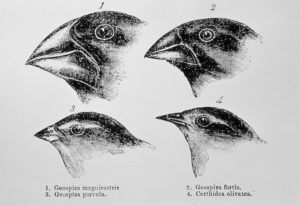
Outside the house, Mr. Simpson announced
Sally couldn’t go to the meeting.
He went on cleaning his blue Rolls Royce
and she went inside weeping
She got to her room and tears splashed the picture of the new Messiah
She picked up the book of her father’s life and threw it on the fire.
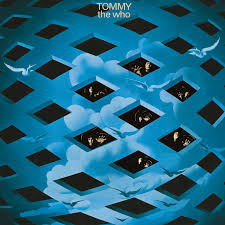
I have long been fascinated with how we get to the point where a child “picks up the book of her [parents’] life and throws it on the fire.” Where do those oppositional, defiant, angry, acting out adolescents come from? How can a 17-year-old loudly tell his parents, “I want nothing to do with you?” How can a young adult refuse to come see a dying parent? How can a teenager tell his parents to go jump in a lake? Is it possible that the parents have communicated, “I don’t care about that which is of interest to you?” Are the children, therefore, disconnected from what is important to their parents?
Parents are the first and most important of a child’s teachers. The more parents respect their kids the more our kids will respect their teachers. And the fewer teachers will have to sigh and explain why “Will this help us in life?” is such an offensive, soul-denying question. I have to imagine Rosalind Franklin never asked, “will this be on the test?” when she was changing the way humans understand genetic inheritance and helping to unlock the secret of life on Earth.



5 thoughts on “Rosalind Franklin”
Excellent! Thank you for writing this, David. My husband just retired from teaching high school biology and what you say is true. He can relate to the ‘soul-denying’ question. Here’s to learning. And here’s to Rosalind Franklin!
This is a good reminder at this time— when young 9 year olds start studying for their SSAT to get into middle schools in 4th grade. It is unconscionable that these young chilcren are being robbed of their childhoods with the constant stress and reminders about this upcoming exam. The exam, I have been told, tests these young children on eighth grade content! As such, in order to compete for these
“top schools” parents feel that they need to equip their children fairly “with the appropriate weapons for the upcoming battle”. In my humble opinion, it simply is not worth it! There are MANY fine school options here in Miami. Further, I have NEVER seen a typically developing child not get into one of these schools. However, the parents continue to push. Watch your child. Are they getting headaches? Stomach aches? Throwing up? If so, perhaps it is time to reevaluate the push…..
David
Excellent. Congratulations. Beautifully presented and compelling.
Ed
David,
Love this, as always. I learned a lot from this too. Last night, we went to hear Dan Siegel talk about his new book, Aware, just published today. It’s very grand in scope, about reforming the world as much as about child-reading. I am sure you are familiar with his earlier work. There is some overlap between you. What do you think of him?
That’s an amazing amount of information in one article. I don’t know why The Who never got a Noble Prize. Actually, a fabulous article! Will the info discussed be on the test?